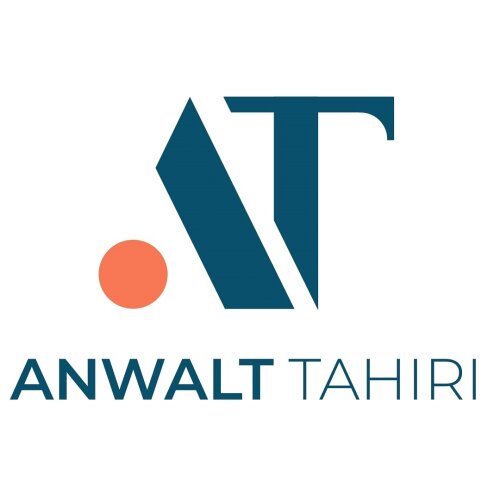Best Real Estate Lawyers in Rabat
Share your needs with us, get contacted by law firms.
Free. Takes 2 min.
Free Guide to Hiring a Real Estate Lawyer
List of the best lawyers in Rabat, Morocco
About Real Estate Law in Rabat, Morocco
Rabat, as the capital city of Morocco, represents a dynamic real estate market characterized by a mix of modern and historical architecture. The city's real estate sector is governed by a combination of traditional property rights and newer laws that have been enacted as part of Morocco's broader legal reforms. Real estate transactions can involve complex processes, and potential buyers, sellers, and renters need to familiarize themselves with various legal aspects specific to Rabat and Moroccan law in general to navigate this market effectively.
Why You May Need a Lawyer
Real estate transactions can be fraught with legal complexities. Here are some common situations where you may need legal assistance:
- Purchasing Property: Due diligence, contract negotiation, and document verification are crucial steps in purchasing a property.
- Selling Property: Ensuring compliance with tax obligations and local regulations is essential for sellers.
- Lease Agreements: Drafting or reviewing lease contracts to ensure they are fair and comply with national and local laws.
- Dispute Resolution: Handling disagreements between landlords and tenants or between property buyers and sellers.
- Zoning and Land Use Issues: Navigating the complexities of local zoning laws and land use regulations.
- Inheritance and Property Rights: Dealing with issues related to inheritance laws which can impact property ownership.
- Construction Contracts: Ensuring construction and renovation contracts are compliant and protect your interests.
Local Laws Overview
Rabat falls under national Moroccan laws, yet there are specifics to the local market that stakeholders must understand:
- Property Ownership: Foreigners may purchase property but must adhere to specific regulations, especially concerning agricultural land.
- Registration: All real estate transactions must be officially registered to be legally recognized.
- Notarial System: Notaries play a crucial role in processing legal documentation for real estate transactions.
- Taxes: Property transactions involve several taxes, including registration fees and potential capital gains tax.
- Tenant Rights: Moroccan law provides specific protections for tenants, and leases must adhere to national standards.
Frequently Asked Questions
Is it possible for foreigners to buy property in Rabat?
Yes, foreigners can buy property in Rabat. However, they must follow local regulations and cannot directly purchase agricultural land.
What are the typical costs associated with purchasing property?
Costs include the purchase price, notary fees, registration fees, legal fees, and any applicable taxes.
How can disputes between landlords and tenants be resolved?
Disputes can often be resolved through negotiation or mediation. If unresolved, they may be taken to court.
What role does a notary play in real estate transactions?
Notaries are responsible for drafting and authenticating all legal documents related to real estate transactions.
Are there restrictions on selling property inherited in Rabat?
Inheritance laws influence property transactions. It's advisable to consult a lawyer for specific cases.
What should I know about zoning laws in Rabat?
Zoning laws regulate the use of land and property. Ensure the property’s intended use aligns with current zoning regulations.
How long does it typically take to complete a real estate transaction?
The process can range from a few weeks to several months, depending on the complexity of the transaction.
What taxes should be considered in a real estate transaction?
Consider registration duties, property taxes, and capital gains tax, among others.
How do I verify property ownership?
Conduct a title search through the local Land Registry office to verify ownership and any potential encumbrances.
Are lease agreements regulated differently for commercial properties?
Yes, commercial leases are subject to specific regulations that may differ from residential lease agreements.
Additional Resources
If you need more information or assistance, consider consulting the following resources:
- Local Real Estate Agencies: Often have extensive knowledge of the market and legal procedures.
- Land Registry Office: For property records and title searches.
- Ministry of Urbanism: Oversees urban planning and zoning regulations.
- Moroccan Bar Association: For finding licensed real estate attorneys.
- Chamber of Notaires: Provides information on the role of notaries in real estate transactions.
Next Steps
If you need legal assistance, begin by identifying a qualified real estate attorney or notary in Rabat. You can contact the Moroccan Bar Association or visit local law firms to schedule consultations. It's important to discuss your specific needs, obtain quotes, and ensure they have the necessary expertise in the local real estate law. Finally, always verify the credibility of the legal professional you plan to hire.
Lawzana helps you find the best lawyers and law firms in Rabat through a curated and pre-screened list of qualified legal professionals. Our platform offers rankings and detailed profiles of attorneys and law firms, allowing you to compare based on practice areas, including Real Estate, experience, and client feedback.
Each profile includes a description of the firm's areas of practice, client reviews, team members and partners, year of establishment, spoken languages, office locations, contact information, social media presence, and any published articles or resources. Most firms on our platform speak English and are experienced in both local and international legal matters.
Get a quote from top-rated law firms in Rabat, Morocco — quickly, securely, and without unnecessary hassle.
Disclaimer:
The information provided on this page is for general informational purposes only and does not constitute legal advice. While we strive to ensure the accuracy and relevance of the content, legal information may change over time, and interpretations of the law can vary. You should always consult with a qualified legal professional for advice specific to your situation.
We disclaim all liability for actions taken or not taken based on the content of this page. If you believe any information is incorrect or outdated, please contact us, and we will review and update it where appropriate.
Browse real estate law firms by service in Rabat, Morocco
Rabat, Morocco Attorneys in related practice areas.









